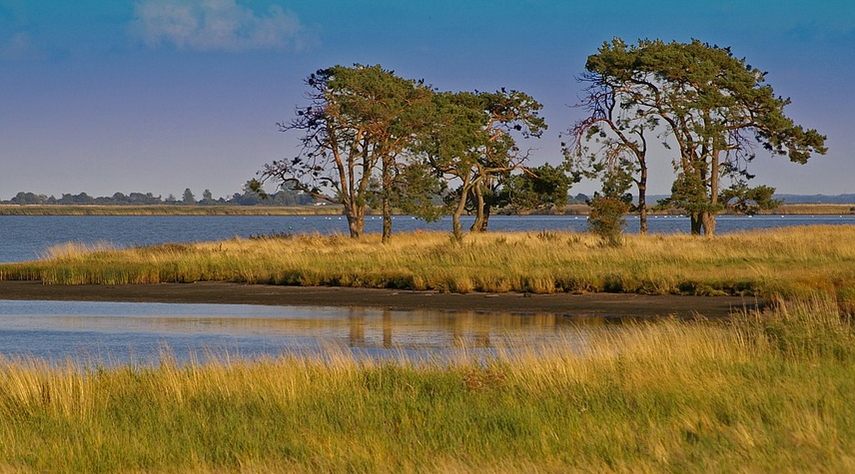The epistemological foundations of landscape ecology
DOI:
https://doi.org/10.20873/jbb.uft.cemaf.v3n3.ritterKeywords:
epistemology, landscape ecology, landscapeAbstract
Landscape began to be cited as a scientific technical term in the nineteenth century. Since then it has been defined according to different philosophical references, where it is possible to see a clear dualism in its meaning. This is a matter of intense debate within the social and natural sciences: the physical geography proposes an understanding of the landscape as an ecological system, whereas the human geography turns to the interpretative vision. There are European and North American roots of the ecological landscape, being the latter more recent (1980s), which is based on ecosystem ecology and spatial modeling/analysis. Its development was favored by the advent of satellite imagery and popularization of personal computers, therefore providing important resources for imaging and geo-statistical analyzes. But still, there are different positions to be taken by the researcher working in this area. Metzger (2001) suggests adopting an integrated approach, where the ecological context and human action are considered and managed as mandatory elements in environmental dynamics. Our study aimed to list some of the key concepts of landscape considered by biologists in their research on landscape ecology.
References
Farina, A. (2000). Landscape Ecology in action. Dordrecht, Kluwer Academic Publishers. 317 p.
Martins, E. S; Reatto, A.; Carvalho Júnior, O. A. E Guimarães, R. F. 2004. Ecologia de Paisagem: Conceitos e Aplicações Potenciais no Brasil. Documentos Técnicos 121. Planaltina, Embrapa Cerrados.
Mendonça, F. (2004). Geografia Sócioambiental. In: Kozel, S e Mendonça, F. Elementos de Epistemologia da Geografia Contemporânea. Curitiba, UFPR, p.121-143
Metzger, J. P.; Pivello, V. E.; Joly, C. A. (1998). Landscape Ecology Approach In The Conservation And Rehabilitation Of Riparian Forest Areas In S.E. Brazil. IN: Salinas Chávez, Eduardo, & Middleton, John (org). Disponível em:<http://www.brocku.ca/tren/EPI/lebk/ lebk.html>. Acesso em 20 ago. 2011
Metzger, J. P. (2001). O que é ecologia de paisagens? In: Biota Neotropica. 1, 1-9.
Nanuncio, V. M.; Ritter, L. M. O.; Spies, D. S.; Moro, R. S. (2007). A concepção da Ecologia da Paisagem na produção científica da Pós- Graduação no Brasil. In: Simpósio Paranaense de Pós Graduação em Geografia, Londrina: UEL, 1- 9p.
Naveh, Z. and Lieberman, A. (1994), Landscape Ecology: theory and application. Springer-Verlag, New York, 360p.
Nucci, J. C. (2007), Origem e desenvolvimento da Ecologia e da Ecologia da Paisagem. Revista Eletrônica Geografar, 2, 77-99.
Passos, M. M. dos (2003), Biogeografia e Paisagem. Maringá [sn], 264p.
Pivello, V. R. e Metzger, J. P. (2007), Diagnóstico da pesquisa em ecologia de paisagens no Brasil (2000-2005). Biota neotropica, 7, 21-29
Rohde, G. M. (1996), Epistemologia Ambiental: uma abordagem filosófico científica sobre a efetuação humana alopoiética. Porto Alegre: EDIPUCRS, 167p.
Troll, C. (1966). Landscape Ecology. Delf: Publ. UNESCO, 23p.
Turner, M. G. (2005). Landscape ecology: what is the state of the science? Annual Review of Ecology, Evolution, and Systematics. 36, 319-344.

Published
How to Cite
Issue
Section
License
Copyright (c) 2024 - Journal of Biotechnology and Biodiversity

This work is licensed under a Creative Commons Attribution 4.0 International License.
Authors who publish with this journal agree to the following terms:
Authors retain copyright and grant the journal right of first publication with the work simultaneously licensed under a Creative Commons Attribution License (CC BY 4.0 at http://creativecommons.org/licenses/by/4.0/) that allows others to share the work with an acknowledgement of the work's authorship and initial publication in this journal.
Authors are able to enter into separate, additional contractual arrangements for the non-exclusive distribution of the journal's published version of the work (e.g., post it to an institutional repository or publish it in a book), with an acknowledgement of its initial publication in this journal.
Authors are permitted and encouraged to post their work online (e.g. in institutional repositories or on their website) prior to and during the submission process, as it can lead to productive exchanges, as well as earlier and greater citation of published work (Available at The Effect of Open Access, at http://opcit.eprints.org/oacitation-biblio.html).


